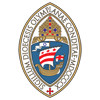“I think of mythology as the homeland of the muses, the inspirers of art, the inspirers of poetry. To see life as a poem and yourself participating in a poem is what the myth does for you.”
Joseph Campbell
Myth and Mystery

For the month of March, we revisited some of our shared myths through poetry and explored how poets use mythology to enrich our universal experiences. Big thank you to our guest presenter, Mark Perschbacher.
In his poem collection, “Map of the New World,” Caribbean poet Derek Walcott examines an ancient map in the first poem with the fearsome notation “Here be Dragons, “and in his second poem imagines the Battle of Troy’s cast of characters as they age and fade. Native American poet and writer Louise Erdich recounts the myth of the Windigo monster who is defeated by a clever child, and Samoan poet Albert Wendt celebrates the creation myth of islands in his poem, “Stepping Stones.” William Butler Yeats alludes to the “face that launched a thousand ships,” in his poem, “No Second Troy,” and also capitalizes on Celtic mythology to create his poem, “The Song of Wandering Aengus.” Poet Anne Sexton recounts the myth of Icarus and his famous fall but with a modern twist of irony in her poem, “To a Friend Whose Work has Come to Triumph.”
For Further Exploration – Writing Prompt:
Is there a mythological figure or archetype by which you feel particularly compelled today?
- How is it manifesting in your body?
- What senses are activated – sight, sound, touch, taste, smell?
- Metaphors that speak to this awareness?
- Embody the metaphors and give them life in a few lines of poetry.
Check out these resources for additional background…optional, of course.
Our Curator and Guide:

Poetry has been a life-long passion and solace for Rebecca Echert-Lennstrom. The beauty and playfulness of verse captured her heart early and became a well-spring of reflection and inspiration. For the last 25 years, she’s been sharing that love with high school students as an English teacher and creative writing instructor, steeped in words and imagery. She’s coached students in the National Poetry Out Loud Competition for ten years, paired with professional poets in the classroom to inspire student writing, and published high school creative writing magazines. This is her second year curating the Mindful Poetry Series as a ministry of the Episcopal Church.

